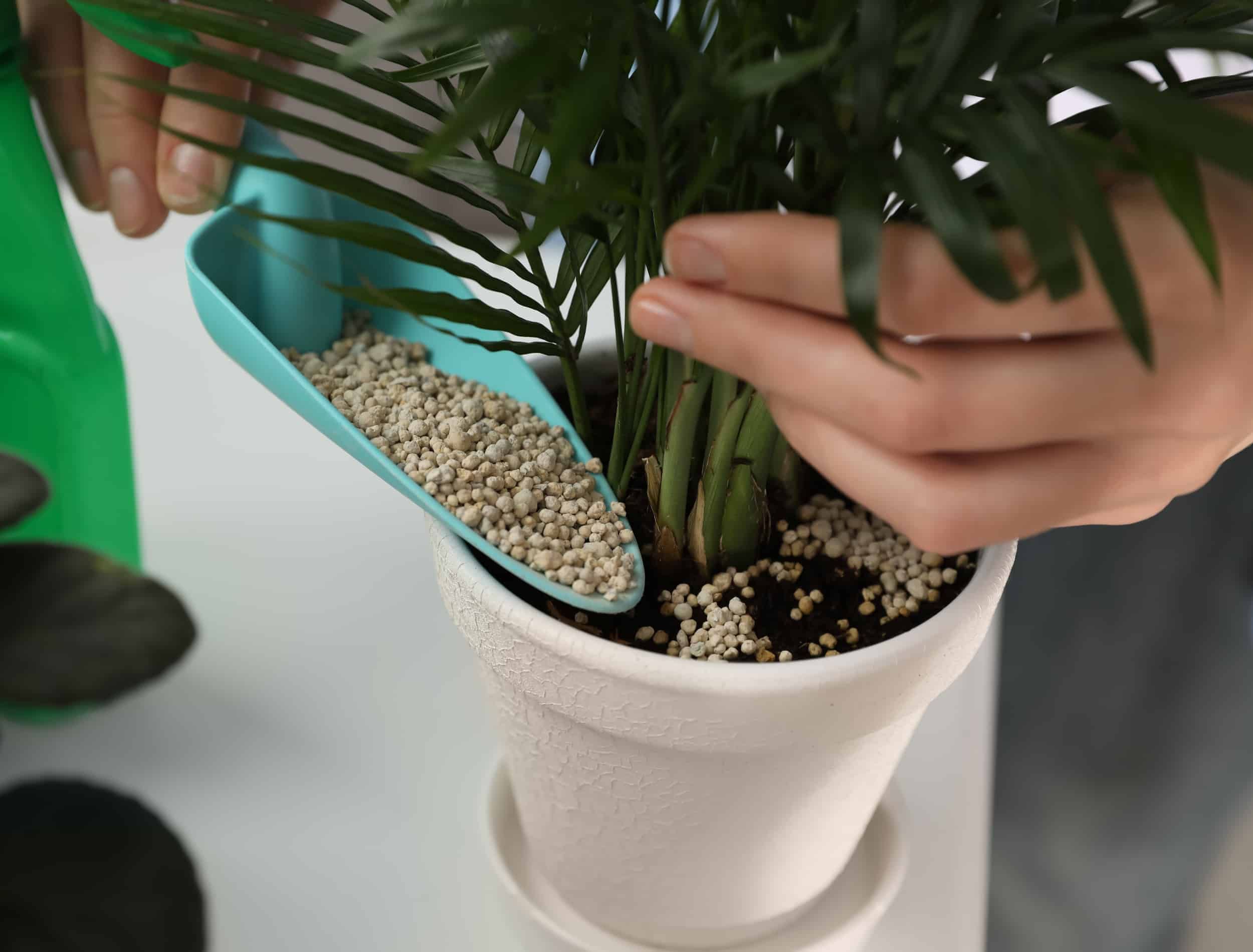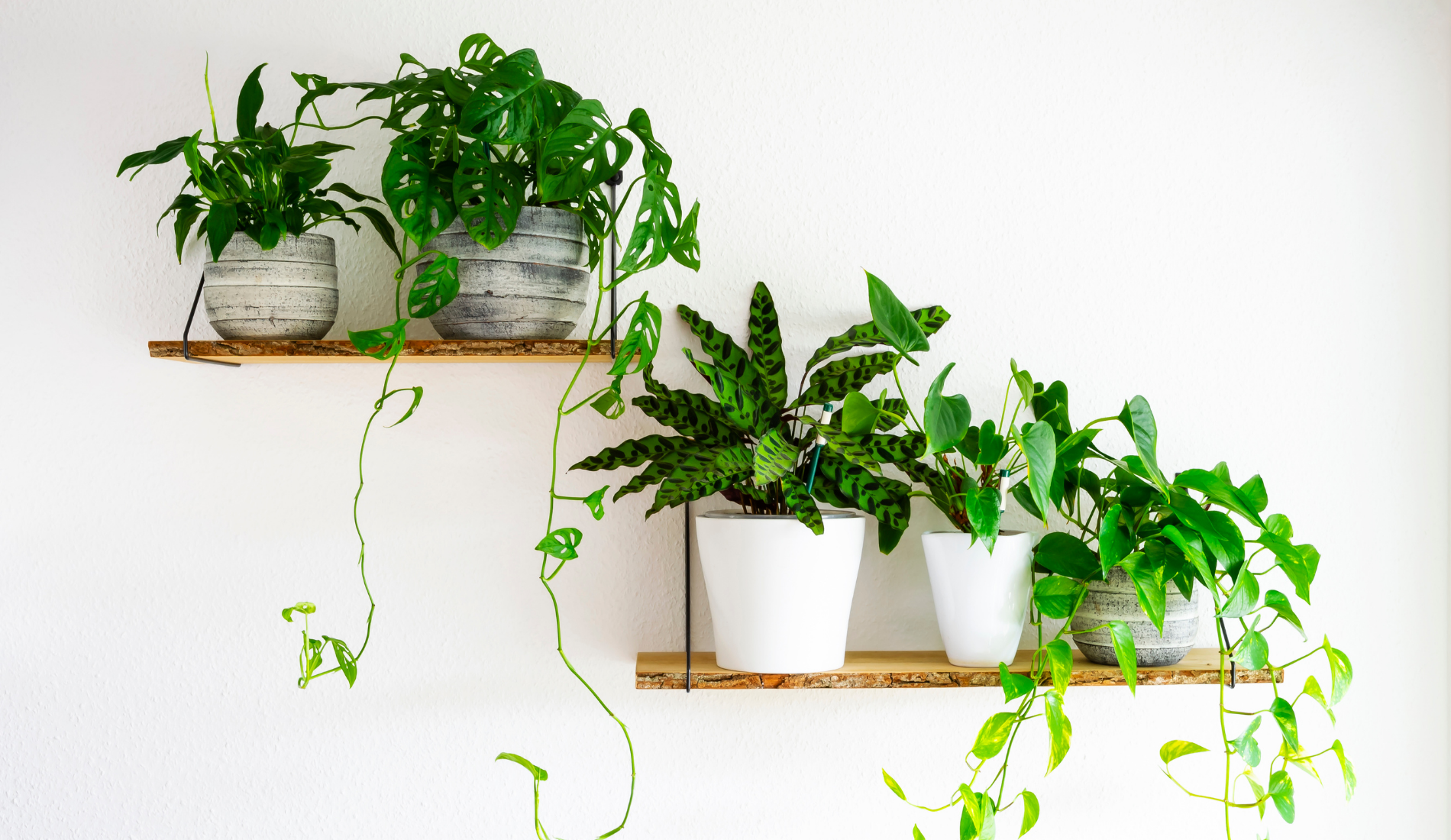Houseplants are a great way to add color and life to your home and purify the air. But like all plants, they need the right maintenance and attention to thrive. One important aspect of plant care is fertilization. Various plants need diverse types of fertilizer at different times, so it can be tricky to keep track.
So, how do you know when to fertilize houseplants? Read on for everything you need to know about fertilizing your houseplants!
When Is The Best Time To Fertilize Your Houseplants?
Image credits: Maksym Ponomarenko via Canva
Houseplants need fertilizer to help them grow strong and healthy. However, you don't want to over-fertilize your plants, as this can damage their roots and leaves. But when is the best time to do it?
Here are a few things to consider:
- The type of fertilizer you use
- The age and health of your plants
- The time of year
- How often do you water your plants
The type of fertilizer you use will depend on the plants you have. For example, if you grow succulents, cacti, or other desert plants, they will need a different fertilizer than tropical plants. Remember to always read the labels and follow the directions carefully.
The age and health of your plants are also important. If you have young plants, they will need to be fertilized more often than mature plants. And if you have sick or dying plants, they may not need to be fertilized at all. It's best to err on the side of caution and check with a gardening expert before fertilizer.
The time of year is another factor to consider. In general, you should fertilize houseplants in the early spring to late summer, when they are actively growing. But if you live in a warmer climate, you may need to fertilize your plants year-round.
Finally, how often you water your plants will also affect how often they need to be fertilized. If you water your plants every week, they will need to be fertilized more often than if you water them every month.
How To Fertilize Your Houseplants
Image credits: cavanimages via Canva
As mentioned above, fertilizing houseplants is important to maintain their health and vitality. While some houseplants are tolerant of poor soil conditions, most will benefit from being fertilized regularly.
Here are some tips on how to fertilize your houseplants:
- Use a high-quality fertilizer specifically formulated for houseplants.
- Follow the directions on the fertilizer packaging.
- Fertilize houseplants every two to four weeks during the growing season.
- Reduce or eliminate fertilizer during the winter months when plants are dormant.
- Apply fertilizer to moist soil, avoiding contact with plant leaves.
- Water plants thoroughly after applying fertilizer.
Also, when applying fertilizer, follow the instructions on the package. You don't want to use too much or too little - just the right amount!
Organic vs Chemical Fertilizer
There are two types of fertilizer that are commonly used for houseplants: chemical and organic. Chemical fertilizers are made from synthetic ingredients and can be in either liquid or granular form. They are typically high in nitrogen, which is essential for plant growth. However, too much nitrogen can cause problems such as leaf burn or excess vegetative growth.
Organic fertilizers are made from natural ingredients such as manure, compost, or bone meal. They release nutrients slowly and are less likely to cause problems if used correctly. Both types of fertilizer have their pros and cons, so it’s important to choose the one that’s best for your plants.
Benefits Of Fertilizing Your Houseplants
Image credits: DariaMinaeva via Canva
Fertilizing houseplants is often overlooked, but it is a crucial part of plant care. Plants need nutrients to grow and thrive, and fertilizers provide these nutrients.
There are many benefits to fertilizing your plants, including:
- Improved growth: Fertilizer provides nutrients that help plants grow faster and stronger.
- Healthier plants: Fertilizer helps plants resist disease and pests and recover from stress more quickly.
- Bigger blooms: Many houseplants will produce larger flowers if they’re properly fertilized.
- Longer life: Properly fertilized houseplants will often live longer than those that are neglected.
Plants absorb nutrients through their roots, so choose a fertilizer compatible with your plant’s needs. Granular fertilizers are easy to apply, and you can find them at most garden centers. Liquid fertilizers are also available and are especially convenient for plants that are difficult to reach.
When applying fertilizer, always follow the manufacturer’s instructions. Over-fertilizing can damage plants, so it is important to err on the side of caution. Fertilizing houseplants is an easy way to give them the nutrients they need to grow and thrive.
If you want your houseplants to thrive, be sure to give them the fertilizer they need!
In Summary
Fertilizing houseplants can seem daunting, but it’s not that difficult! Just remember to read the instructions on your fertilizer carefully and follow them to a tee. And if you have any questions or concerns, don’t hesitate to look for information among professionals.
Do you have any tips or tricks up your sleeve? Let us know in the comments below!




